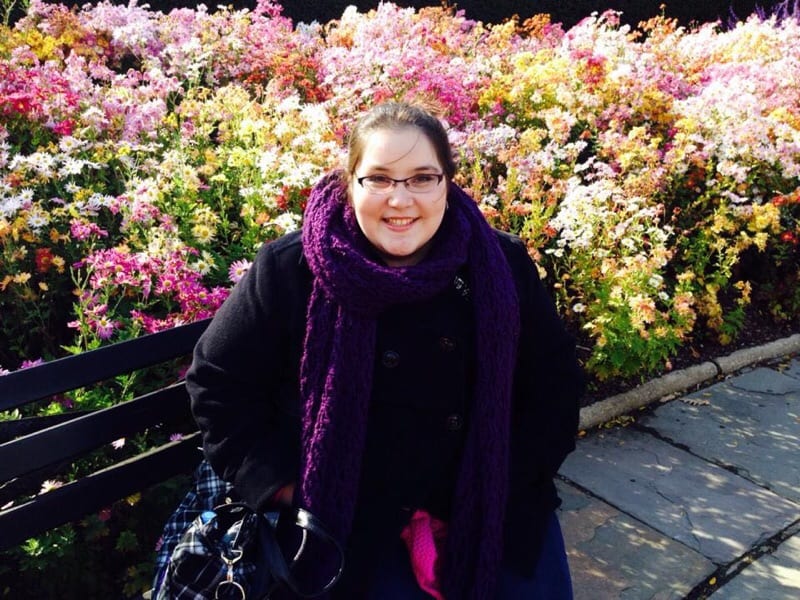Posted by: Staff
A warm welcome to Danielle (Nikki) Meadows, PhD, ASHG/NHGRI Genetics & Public Policy Fellow for 2017-18! Dr. Meadows began her first rotation at the National Human Genome Research Institute in August, and we sat down with her this week to find out more about her background and interest in science policy.

ASHG: What made you interested in the ASHG/NHGRI Genetics & Public Policy Fellowship, and what are you hoping to get out of it?
Nikki: The endless possibilities and potential ethical pitfalls of genetics, genomics, and their related technologies has always been exciting and fascinating for me to think about. What are the possibilities? Can we actually cure millions of diseases in my lifetime (instead of just hoping we can)? If we do that, what will it cost us? How do we decide what constitutes a “disease”? I’m super short and hate to climb on counters to reach the top shelf – can I save my future children from that fate? But if the super wealthy are the only ones able to afford it, how is that fair? Questions like that were always in the back of my mind while I was pipetting at the lab bench or sitting in the lecture hall hearing about new, cool science.
Then, in my second or third year as a grad student at McGill, I ended up getting involved in student government, lured by the opportunity to represent human genetics students at the university level. My long days in the lab were soon being supplemented with (not quite as) long evenings in board rooms discussing issues that affected grad students and working on policies to help navigate them. Around the same time, my thesis project brought some policy-type discussions into our lab meetings about worldwide folic acid fortification levels. Somewhere in that confluence, I realized that this juncture between science and policy was where I wanted to be, because I could combine two things I was captivated by.
I started poking around online and came across the ASHG/NHGRI Genetics and Public Policy Fellowship, and it seemed an ideal segue from a PhD in Human Genetics to a career in genetics public policy. I’m hoping that this fellowship will allow me find my place in policy, where there are so many stakeholders and perspectives from which to approach it. It’s three-rotation setup is seemingly perfect for that.
ASHG: Tell us about your professional background.
Nikki: I got my bachelor’s degree from Rochester Institute of Technology, where I studied biotechnology with a side of theatre arts and sociology. From there I took a year off to decide what I wanted to do next; specifically whether I wanted to pursue an MD or an MD/PhD or a PhD. To help me decide, I joined John Gottsch’s lab at the Wilmer Eye Institute at Johns Hopkins, and had the opportunity to work in the clinic setting and the lab setting as we were studying the genetic basis of Fuchs Corneal Dystrophy. The lab won out – at the end of the year, I accepted a position in Rima Rozen’s lab at McGill University. Under Rima’s supervision, I completed my PhD in Human Genetics, where I was studying how genes and nutrients affect the outcome of malaria.
As mentioned above, during this time I was also involved in student government at McGill, and in my final year, I was elected to serve as the Financial Affairs Officer at the McGill University Post-Graduate Student Society. Continuing my own trend, I took another year and a half “off” after graduation, and I spent that time teaching math and science back in my hometown.
ASHG: What are your main areas of interest in science policy?
Nikki: STEM/STEAM Education (A for “Arts” because STEM needs creativity), how we bring new genetic technologies to the public and ensure their safety and privacy, and how we keep genetic information from being used to discriminate.
ASHG: Describe yourself in 3 words.
Nikki: tenacious, resourceful, whimsical
Nikki Meadows, PhD, is ASHG’s newest Genetics & Public Policy Fellow. You can find her on Twitter at @dn_meadows. Interested in similar topics? Applications for the 2018-19 fellowship open in January 2018.
